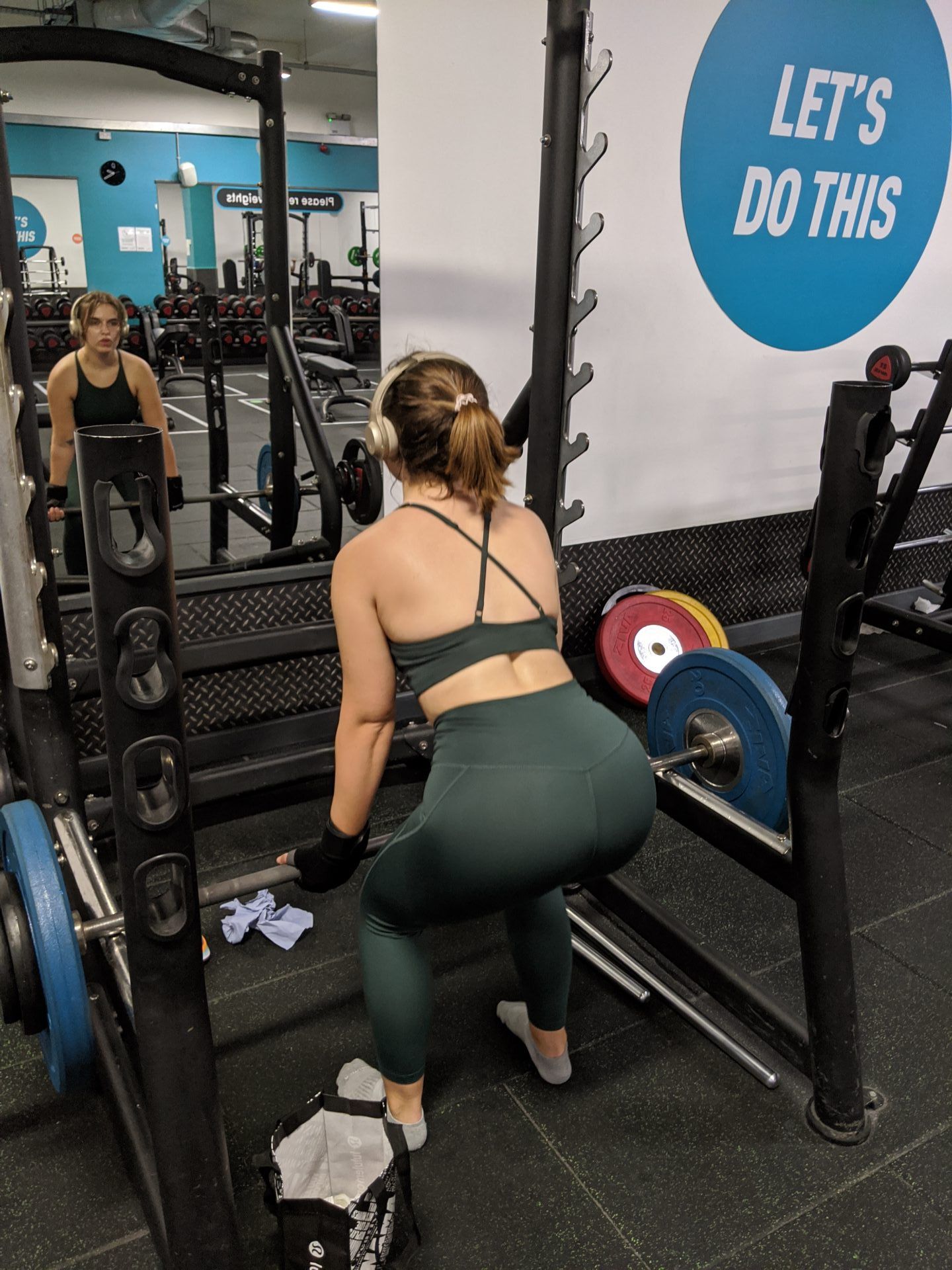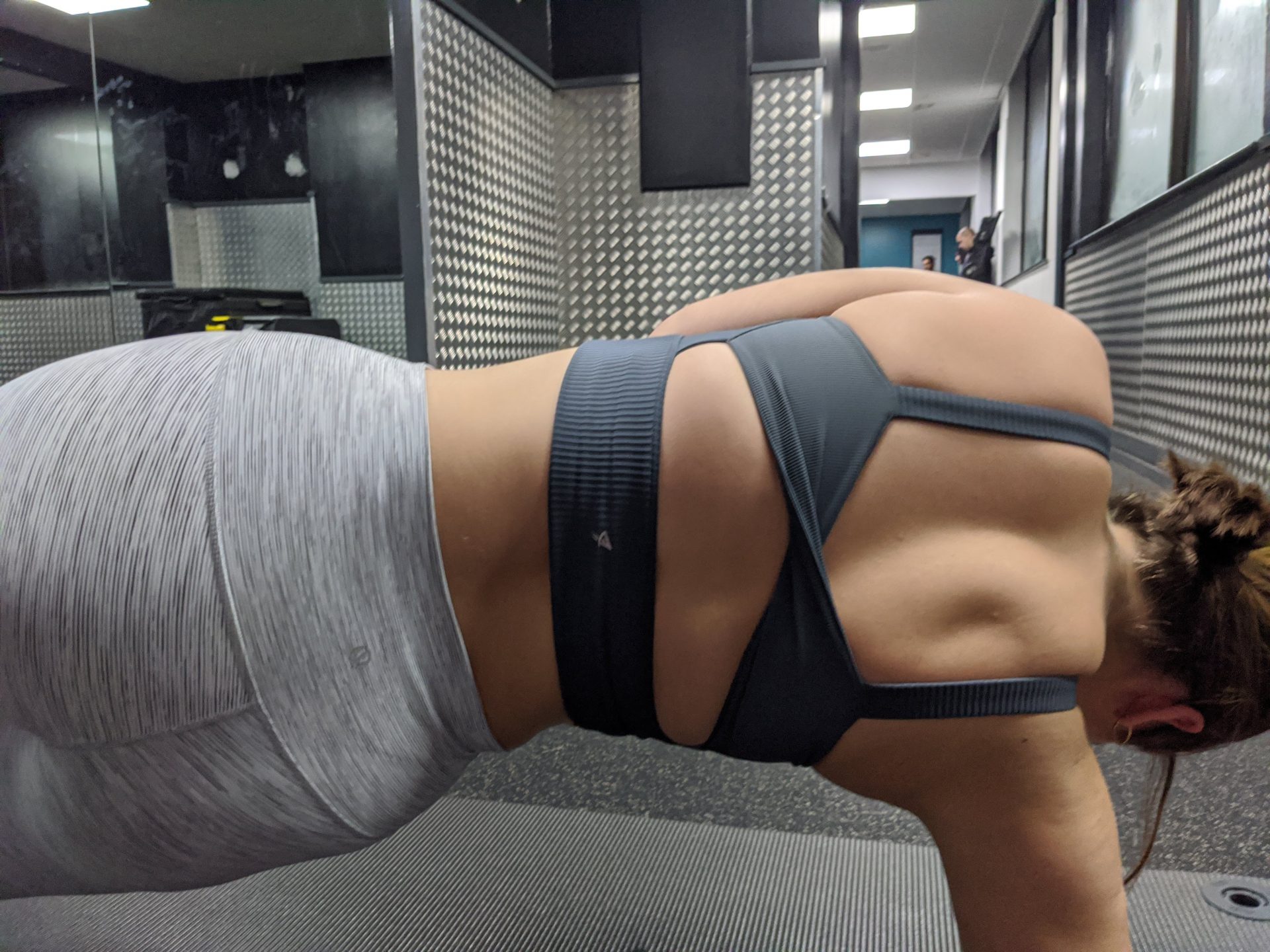For many fitness fans, strength training is a fun hobby that keeps you healthy and strong. But for one writer, learning to weight lift changed her perception of how ‘sporty’ she could be.
My family has a bit of a sporting legacy. My grandparents met when they joined the same rowing club as teenagers, my dad was a talented rugby player and now golfer, and my mums pretty much excel in every physical activity under the sun, including football, water skiing and scuba diving. My cousins are semi-professional sportsmen, dancers, netballers and tennis players – and then there’s me.
You may also like
What weight should I be lifting? Fitness trainers explain how to know what weight to pick in the gym
Throughout my life I’ve been classed, and classed myself, as bad at sport. I always dutifully participated in PE lessons and volunteered as a sub if the school hockey team was short on players that week. It wasn’t that I don’t enjoy it, but that I never felt like I’d found my ‘thing’ like everyone else in my family had.
I flitted between horse riding and swimming, the perfectionist in me getting fed up when I wasn’t immediately great at it. I left my football team just before the end of my third season with them, quitting just before I was awarded most improved player on the team.
Like most people, I thought that going off to university would be my real chance to reinvent myself, and I was finally going to be someone sporty.On the first day, I eagerly signed up for rowing, lacrosse and Argentine tango lessons, but never went back after the try outs.
I still didn’t feel like they fit me or that I was good enough at them. Sport and me just weren’t meant to be. I didn’t have the natural athleticism everyone else seemed to have.
Of course, I knew deep down that you have to put in the work to see progress, but I figured that I’d just be reluctantly chained to a treadmill to get me moving for the rest of my life.
You may also like
Weight lifting: the reason women experience comparison culture in the gym, according to Poorna Bell
That was until two years ago, when my boyfriend convinced me to try weight training with him.
I’d never thought about weightlifting before because, well, the patriarchy dictates that 5ft 3’ women like me just don’t do that kind of thing. And if I couldn’t master rounders, how the hell was I supposed to feel confident lifting kilos of metal above my head?
But luckily he was incredibly patient with me, reassuring me a thousand times that going to the gym was about so much more than what I looked like and teaching me the proper form so I wouldn’t injure myself.
I started off slowly, mastering lat pulldown and squatting using the Smith machine; it was like something had clicked inside me.

For the first time, I was better and stronger than I had expected. The progress I made week on week – an extra kilo to my shoulder press or nailing more reps in my barbell row – kept me interested and motivated. It was like a fun competition, but only with myself for how much I could push.
Where I’d first insisted on training only with him, allowing gymtimidation to get the better of me, my confidence eventually grew. I became independent, learning my own exercises and consulting a personal trainer to help me really master my form for heavier lifts. I got stronger and happier. Weightlifting became not just my ‘thing’, but my hobby and release.
And then last week, alone in a packed gym with nothing but a pumping workout playlist to spur me on, I hit my first ever 100kg lift: a rack pull for three reps.
You may also like
Benefits of strength training: 7 long-term health benefits to lifting weights
Moving 100 kilos, 1.5x my body weight, was something I’d long aspired to achieve, and it felt incredible when I did. I immediately texted my family to tell them, and revelled in their congratulations and pride. But I don’t lift to keep up with them, I do it for myself.
Sport is about enjoyment, and it can also make us feel powerful. That’s what strength training does for me. Watching my weights get heavier and form get better week on week has altered my body, but more importantly my mindset.
The first time I ever lifted, I was terrified, but I’ve learned over the last two years that the most important thing you can do is trust your body, and yourself. Every time I prepare for a lift, I tell myself that I have the power, strength and resilience to move the weight. But that sentiment stands for other sports too.

When lockdown first hit in 2020 and I wasn’t able to visit my beloved weights area, I panicked and reverted into my old way of thinking that I couldn’t do anything else. But I pushed myself to tackle my old nemesis running, and, after a few false starts and plenty of practice, I was racking up 7ks by the second lockdown. I took the pressure off and just trusted myself that I could do it – and I did.
As empowering communities on and offline, like Poorna Bell’s See My Strong continue to prove, sporty can look and feel like anything. Building confidence on your own terms, listening to your body and prioritising what feels right to you is the most important thing you can do – for yourself and your sport.
Images: Amy Beecham
Source: Read Full Article
